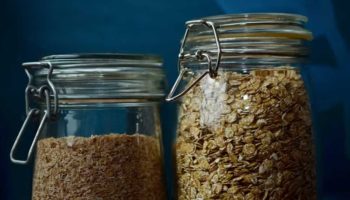You parked your car under a tree in spring or summer and now it’s covered in a sticky substance? This is probably not pollen, but so-called “honeydew”. Why you should wash your car as soon as possible and what else you need to know about the sticky substance, you can find out here.
Honeydew: Why your car sometimes sticks in summer
If your car or bike sticks in the summer, a sweet liquid excreted by some insects is likely to blame. These include aphids, scale insects, larvae of various species of leaf fleas, or whiteflies. These insects feed on the sugary sap of some deciduous trees and conifers. In the process, the animals consume significantly more sugar than they actually need. The insects then excrete the excess sugar in the form of honeydew.
Incidentally, these insects – also known as plant lice – only appear in certain weather conditions, but then in large quantities. This is particularly noticeable when the sweet substance sticks to cars parked under trees. Although honeydew is insect excrement, it is not poisonous. On the contrary! The substance consists of various forms of sugar, such as sucrose, glucose, fructose and small amounts of maltose. In addition, honeydew even contains vitamins, ferments and organic acids.
Cleaning sticky car
If your car (or alternatively your bike) is totally stuck due to honeydew, however, there is an urgent need for action. Fungi grow quickly on the sticky film and can damage the paint. Therefore, clean your car as soon as possible in a suitable car wash. Also, avoid scratching the sticky dirt. This could also damage the paintwork.
Note: Washing cars by hand is generally prohibited on private property in most municipalities or is only permitted with clear water on paved surfaces. Therefore, check in advance with the public order office for the applicable guidelines in your locality. Alternatively, you could at least dab the car windows carefully with a damp cloth and some washing-up liquid or glass cleaner.
Eating honeydew?
Honeydew is an important food for many insects, such as ants. In some European and Asian countries, the sticky substance is even eaten by humans – and not just because of its sweet taste. Honeydew is said to have health-promoting effects. In Australia, the substance is also called “manna,” scraped directly from the leaves and processed with water to make sweet drinks. Honeydew is also very popular in Western Europe, when it’s not stuck to your car. Bees collect the sugary liquid and use it to make honeydew honey – better known as forest honey.
By the way, honeydew accumulates particularly strongly under lime trees. In rainy weather, however, the phenomenon does not tend to occur. This is because the rain washes the insects that excrete the honeydew off the leaves. In addition, the substance is so diluted by the rain that it no longer sticks. In order to prevent sticky cars and bicycles in the summer, there is only one thing that helps: If possible, do not park your vehicles under trees.



